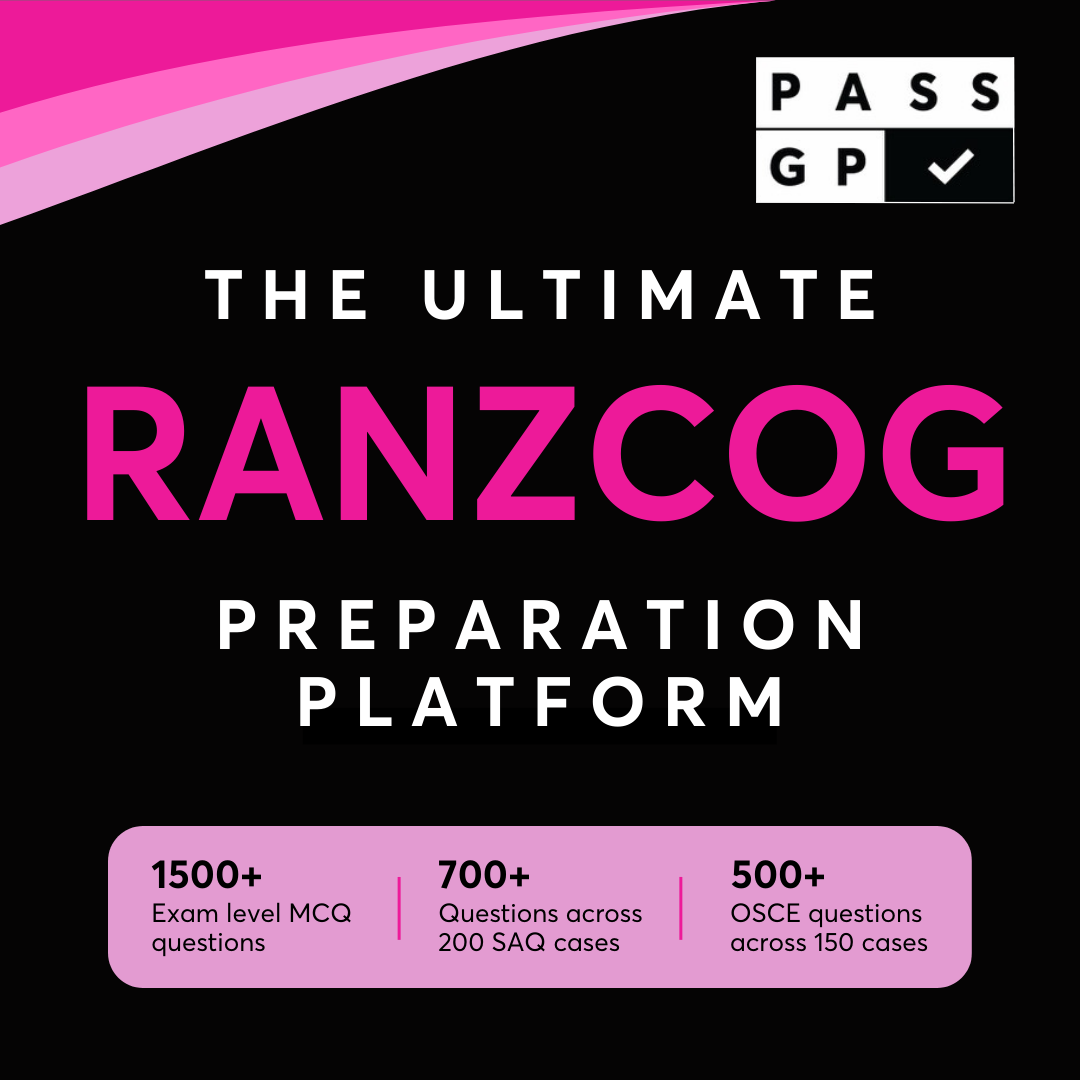The PassGP RANZCOG OSCE 2025 Strategy Guide
The RANZCOG OSCE is the final examination before becoming a Fellow of the Royal Australian and New Zealand College of Obstetricians and Gynaecologists (FRANZCOG). It’s not just a clinical exam - it’s a test of how well you think, communicate, and practise as a future consultant.
As A/Prof George Eskander, Chief Examiner at PassGP puts it:
“The OSCE rewards structure, empathy, and clinical maturity. Candidates who pass don’t just know content - they know how to connect, prioritise, and explain.”
Let’s walk through exactly what to expect and how to prepare.
What is the RANZCOG OSCE Exam?
- 10–12 clinical stations
- Each station is 8–12 minutes with structured marking
- Covers obstetrics, gynaecology, ethics, communication, and emergencies
- Simulated patients or examiners act as patients, relatives, or junior staff
You’ll be marked on:
- Clinical accuracy
- Communication
- Cultural safety
- Professionalism
- Time and task management
What Skills Are Tested?
The OSCE is not about recalling guidelines - it’s about demonstrating specialist-level thinking in pressured settings.
Expect scenarios such as:
- Breaking bad news (e.g. miscarriage, abnormal CTG)
- Explaining surgical consent (e.g. hysterectomy or caesarean section)
- Managing emergencies (e.g. shoulder dystocia, PPH, eclampsia)
- Dealing with ethical/legal issues (e.g. domestic violence, confidentiality)
- Leading teams (e.g. junior doctor requesting help, conflict resolution)
Key Domains to Study
- Obstetrics
- Labour emergencies
- Antenatal counselling
- Postpartum complications
- CTG interpretation
- Gynaecology
- Heavy menstrual bleeding
- Pelvic pain differentials
- Cervical screening & colposcopy
- Surgery and malignancy counselling
- Communication & Ethics
- Open disclosure
- Cultural sensitivity
- Decision-making with vulnerable patients
How to Prepare Effectively
- Practise With Timers
Recreate real OSCE pressure. Use 8-minute timers with 2-minute reading.
- Script Your Openings and Closings
Have a structured approach:
“Hello, my name is Dr Smith. I’m the senior registrar looking after you today…”
“Let me just summarise what we’ve discussed and talk about the next steps.”
- Role-Play With Feedback
Practise with colleagues or join a formal course. It’s not just what you say - it’s how you say it.
- Review Past Exam Topics
While exact cases vary, themes repeat:
- Bleeding in pregnancy
- Fetal compromise
- Sexual health communication
- Abnormal results (e.g. smear, histology, ultrasound)
- Focus on Structure, Not Memorisation
The OSCE isn’t won with facts - it’s passed with calm, structured logic under pressure.
How PassGP Helps You Pass the OSCE
At PassGP, we provide:
- Full OSCE-style cases with model answers
- Scenarios in breaking bad news, surgical consent, labour ward calls, and more
- Examiner-style feedback points
- Video walkthroughs with realistic candidate responses
Created by senior O&G educators and reviewed by A/Prof Eskander, our materials reflect the real difficulty and structure of the exam - not just simplified study guides.
Start your journey.
Trial PassGP RANZCOG for Free
40 MCQ Questions pitched at the difficulty level of the exams
60 SAQ Questions across 20 SAQ Cases pitched at the difficulty level of the exams
60 Oral Clinical Questions across 20 OSCE Cases in exam format
PassGP Mobile App ready to use
PassGP AI Virtual Tutor to teach and answer your medical queries
PassGP RANZCOG Examiner Hints and Tips accompanying each question
Full access to the PassGP Academy, focussing on examination technique
Don't Take Our Word For It
See what our candidates have to say who have reviewed us on Google



